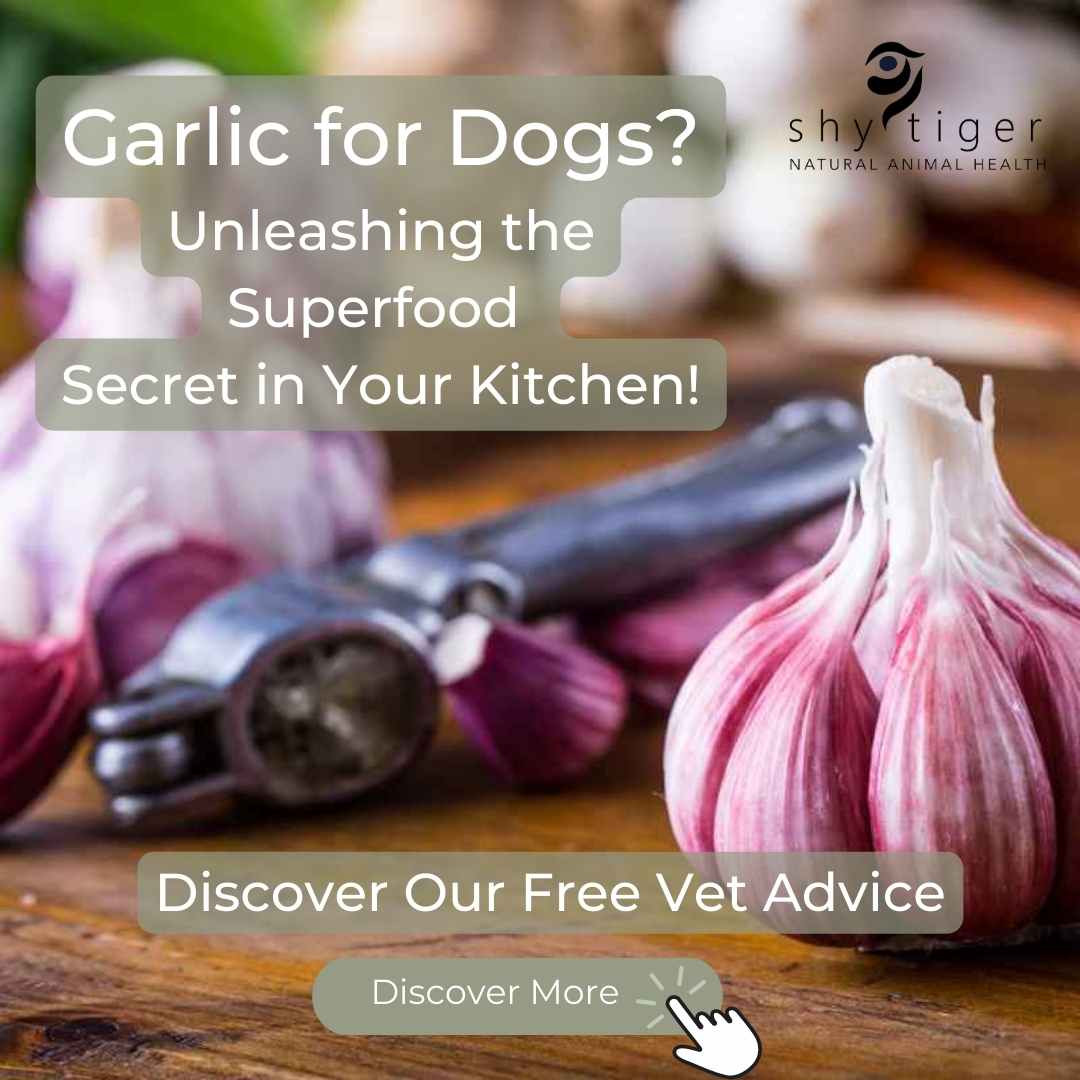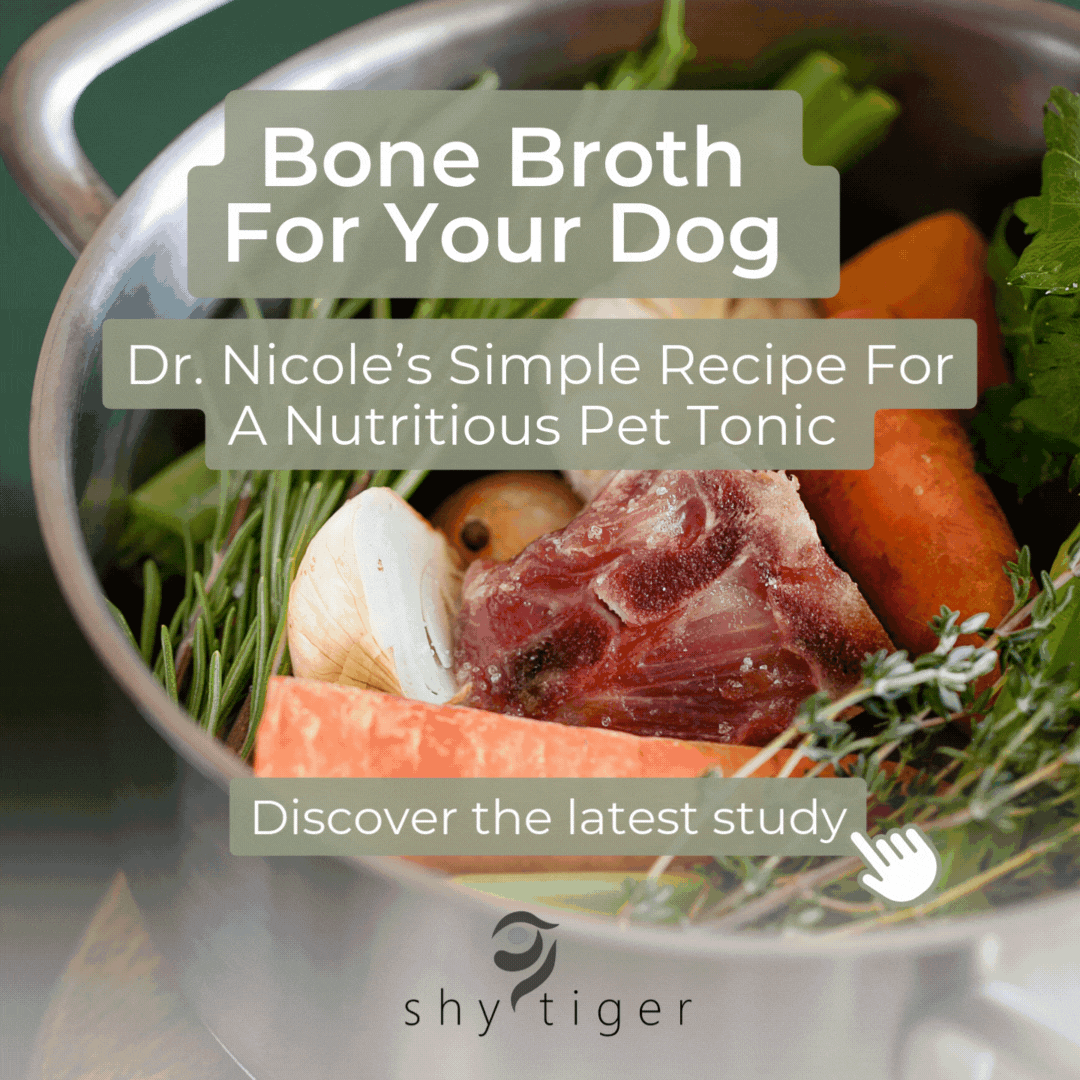Garlic for Dogs: Unleashing the Superfood Secret in Your Kitchen!

Today, I invite you to delve into a fascinating dialogue that's making waves in the field of pet nutrition: Garlic. This unassuming yet potent culinary mainstay that subtly flavours our meals may also conceal unexpected advantages for our cherished four-legged companions.
Addressing a prevalent concern, you might find yourself questioning, "Isn't garlic harmful to dogs?" It's a common belief that garlic poses a health risk to dogs, but recent scientific explorations suggest this may not be the complete truth. When administered in carefully measured quantities, raw garlic appears to be harmless and might even bestow a plethora of health benefits to our canine friends.
Dr. Conor Brady, a distinguished authority in this field, sheds light on the potential benefits and precautions surrounding the integration of garlic into a dog's diet in one of his insightful articles.

So, what propels garlic to the potential status of a canine superfood? Hailing from the Allium vegetable family, garlic is packed with indispensable nutrients. It's abundant in various minerals such as sulfur, zinc, potassium, magnesium, and manganese, along with vitamins A, C, and B-complex. Moreover, garlic is home to bioactive compounds known as allicin and ajoene, potent substances renowned for their anti-cancer properties, ability to lower blood sugar and cholesterol, and enhance blood circulation.
Here's a deeper dive into some potential benefits that raw garlic could confer to dogs, primarily rooted in evidence procured from human studies:
- Antibiotic, antifungal, and antiparasitic properties: Garlic may serve as a formidable ally in battling infections and parasites, thereby improving your dog's overall health.
- Immunity enhancement: Garlic could potentially bolster your dog's immune system.
- Protection against the common cold: Garlic might offer a beneficial shield against colds during the nippy seasons.
- Blood health: Garlic may contribute to lowering blood pressure and elevating anti-clotting factors in the bloodstream.
- Cardiovascular wellbeing: Garlic's potential to mitigate internal inflammation and lower cholesterol levels could decrease the risk of heart diseases.
- Detoxification: Garlic might assist in purging heavy metals from the body.
An important fact to note is that garlic does not contain thiosulphate, a toxic compound found in other members of the Allium family, including onions, which are definitely harmful to dogs.
One particularly commendable application of raw garlic in pet care is its potential as a natural deworming agent. Its antimicrobial, antiseptic, and antibiotic properties might aid in managing worms in our pets. Intriguingly, raw garlic has demonstrated effectiveness as a deworming agent in diverse animals, including pigs and cats.
Garlic presents a myriad of benefits for pets and humans alike.
The ABC recently published an article detailing a study conducted by the Doherty Institute. This study scrutinizes the impact of Garlic on COVID-19 and influenza A, with the institute's findings keenly awaited.

On a personal note, my father-in-law, at the ripe age of 86, partakes of fresh garlic daily and manages an impressive daily walk of 20km. Quite amazing, isn't it? He's also the proud father to 15 children, although this might be less influenced by the garlic and more connected to his daily oyster feast.
Returning our focus to pets.
While the potential benefits of garlic are certainly intriguing, it's paramount to remember that individual dogs may respond differently to this supplement. Diligent observation is essential when introducing new supplements into your pet's diet. Moreover, it is absolutely crucial to consult with a professional veterinarian before introducing any new supplement into your pet's diet.
In all its modest splendour, garlic may indeed hold the potential to be a superfood for our adorable pets. As always, consultation with your veterinarian is imperative prior to introducing any new supplements to your pet's dietary regimen.




Leave a comment